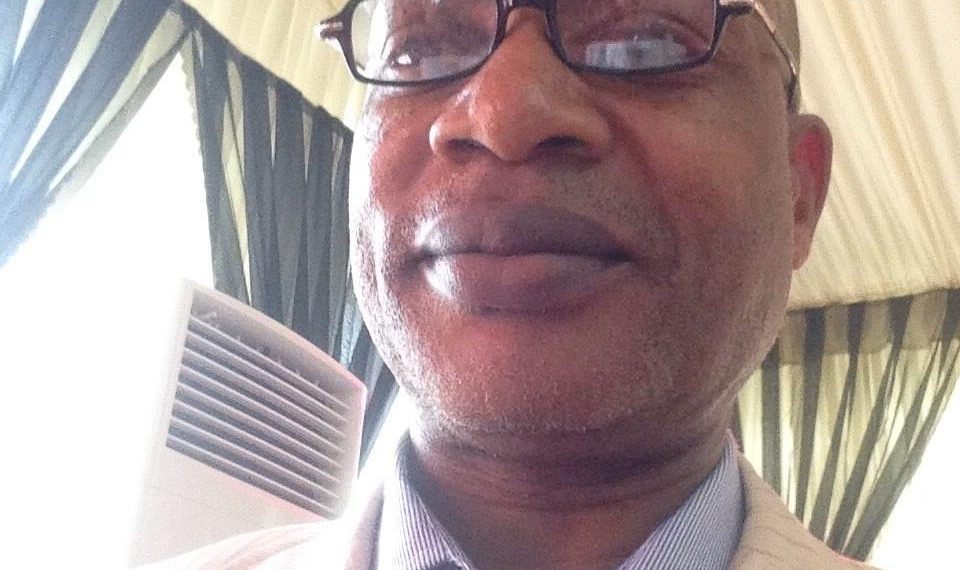By Tunde Olusunle
It is just fitting that several words and expressions which etymology derive from Nigeria, have found their ways into global dictionaries. As at 2020, nearly 30 such inventions had been accommodated by the Oxford Dictionary. They include: okada, tokunbo, gist, k-leg, mama put, danfo, bukateria, chop, eat money, among others. Kannywood, ember months, to put to bed, non-indigene, next tomorrow, and many others, have also been wholly adopted into modern day dictionaries. I wonder, however, if the expression, free me has been so taken in. “Free me” evolved from day-to-day conversations on the streets of the Niger Delta. Some people tell us matter-of-factly, that the expression was birthed on the alleys of Warri. The famous, multilingual city is at the heart of Nigeria’s oil-bearing department of the country, crisscrossed by intriguing creeks, breathtaking mangroves and infinite swamps. The Niger Delta region remains an immensely robust contributor to “Nigerian Standard English,” (NSE), as scholars of sociolinguistics will confirm. This is not forgetting the imprimatur of the zone on the entire gamut of contemporary arts and culture. Free me is a widely deployed expression which can be interpreted as “let me be” or “leave me alone.”
In a few weeks from now, maybe days actually, Muhammadu Buhari, Nigeria’s president in the last eight years will be out of office. Nigerians have endured eight long and forlorn, rough and tough, hungry and angry, famished and anguished, dreary and teary years under a man whose desperation to be president, knew no bounds. By his third attempt in 2011, he broke down in listless cry on national television, vowing never to run for the office anymore. Bola Tinubu who ran to succeed him, poked fun at Buhari, while on a pre-presidential primary consultation last year. He jived about Buhari’s trippings on his initial triple attempts, before he, Tinubu strung together the coalition which finally berthed Buhari in 2015. Buhari would, on his inauguration, tell us he was a “born-again democrat.” Buhari’s reelection in 2019 and the more recent pre-transition election last February, have been mired in more opacity than transparency. It has been described as the worst ever witnessed in our electoral history. Indeed, the 2007 elections previously ranked as the most dubious presidential polls, before Mahmood Yakubu led the Independent National Electoral Commission, (INEC), to deliver the most fraudulent elections in Nigeria, ever.

Buhari’s swansong after his largely catastrophic years as Nigeria’s head, however, consists of inflicting more hurt on the national psyche, rather than contrition for his multiple infringements on our collective wellbeing. For the avoidance of doubt, his scoresheet after his eight-year stint in office has been serially interrogated and certified wholly disastrous and grossly uninspiring. His sojourn in the highest office in the land has for the most part, been an earthquaking sham. The misery level of Nigerians have never been as markedly southward under his watch. Ethnoreligious schism; socioeconomic stasis; pervading mediocrity; legitimised corruption; systemic impunity; aggregate insecurity; staggering hyperinflation; disabling unemployment; accentuating poverty; overarching disillusionment have been the engraved insignia of Buhari’s administration. Under him, Nigeria wrested the pendant of nurturing the “most dangerous city to live in the world.” Our good old Lagos wilfully received that baton of dishonour from drug-crazed South American cities, while also being “chartered” as the “poverty capital of the world.” Under Buhari, Nigeria bested previous records of citizens of countries elsewhere in the world, worsted and wasted in peace time.
In recent weeks, Buhari has been soliciting forgiveness from the mass of Nigerians which his superintendence inflicted with discomfort, disorientation and grief. Before his recent supplications, however, his more sensitive spouse, Aisha, had volunteered apologias on his behalf. She recognises for a fact that her husband wilfully, almost, invented and foisted lachrymose on a preponderance of hapless country people, in the course of his tour of duty. Buhari’s sojourn as Nigeria’s political leader, soured the Chronicles of the Happiest People on Earth, as it were. This is the title of the most recent prose work authored by Africa’s first, and West Africa’s only Nobel Laureate for Literature, Wole Soyinka, which one is borrowing. Nigerians have been anything but excitable in the past 96 months of Buhari’s superintendence.
With a not-too-savoury performance curriculum vitae in the estimation of most Nigerians, it was expected that Buhari will quietly disembark from the national political scene when his time is up, and allow Nigerians pick up the smithereens of their lives. Oblivious of the causticity of bile and venom harboured against him by Nigerians, Buhari has been unduly, even irritatingly talkative in recent weeks. Thinking he will be missed while out of office for instance, he announced how very far away he hopes to stay from Abuja the nation’s headquarters. He wouldn’t want to be misconstrued as meddling in governance and administration of the nation, in the successor dispensation.
Buhari hopes to be in his birthplace, Daura in Katsina State in the initial six months of his disembarkation, before relocating to Kaduna, political headquarters of northern Nigeria. Should he find retirement in his primordial home bothersome, Buhari has threatened to migrate to Niger Republic. Daura he posited, is less than 10 kilometres from his traditional roots. Hope Buhari knows he will not be the first Nigerian leader, military or civilian to return to “base” after service to nation. Yakubu Gowon, Olusegun Obasanjo, Ibrahim Babangida, Abdulsalami Abubakar, Goodluck Jonathan before him, have had different addresses in their various home states since they left office. Shehu Shagari lived in his native Sokoto State before his demise. But Buhari has been whining in our ears like a swarm of bees as though his post-disengagement itinerary should be of any special interest or concern to us.
I wish Buhari knows how very eager Nigerians are to see his back. I wish he has an idea about how keen his compatriots Nigerians are about the coming of Monday May 29, 2023 when he will handover to a succeeding leadership. Of course there are genuine and subsisting issues arising from the last general elections. Buhari and his “un-Independent” National Electoral Commission, (INEC), torpedoed popular will and paved the way for the most contentious general elections in Nigerian history. At the last count, a record 1,044 petitions have been filed against the results declared by INEC in the 2023 polls. The National Judicial Council, (NUJ), recently released the names of 257 judges to adjudicate on fall-outs from the elections.
Rather than fizzle out as innocuously as possible, Buhari’s last days are days of accentuated tauntings for hapless Nigerians. Reminds of the Biblical expression in 1 Kings Chapter 12 verse 11, to wit: “My father made your yoke heavy, I will make it even heavier. My father scourged you with whips, I will scourge you with scorpions.” Nigerians were ushered into the new year by an ill-thought currency redesign and replacement. This sucked up liquidity in the economy in the name of inventing a pseudo-cashless milieu, and precipitated unfathomable inconveniencing for the people, and dislocation for the economy. The Poultry Association of Nigeria, (PAN), recently estimated the losses of the industry to be in the neighbourhood of N50 Billion, within the period.
Typical of the sloppiness with which institutions have been administered under Buhari, the national population census earlier fixed for Wednesday May 3 to Friday May 5, 2023, has been put off. This was after an estimated N400 Billion earmarked for the project had probably been released to the National Population Commission, (NPC). It was about the same sum that was spent on the largely controversial elections, results of which in many cases, will be decided by the judiciary. This is just as the lingering impasse about the removal of subsidy on petroleum products has been front-loaded to the incoming administration, another classic example of Buhari’s dodgy approach to issues requiring official willpower and decisiveness.
Still in the twilight of his government, the departing president recently signed up for a foreign loan to the tune of $800 million, from the World Bank. The said sum will, according to its very nebulous description, be used to cushion the after effects of the removal of fuel subsidy by the federal government. Small comfort. Having deferred the subsidy removal until the advent of a new government, popular opinion is that the loan be reverted to its lenders. This is to forestal the wilful siphoning of the fund by adept state officials who have been serially complicit in the impoverishment of Nigeria and Nigerians. This is just as the nation’s foreign indebtedness nears the N45 Trillion mark, with 96% of resources accruing to government committed to debt servicing.
Not done, Buhari this eve of his exit, has announced a regime of new taxes and tarrifs on certain goods, all calculated to further traumatise Nigerians. Finance minister, Zainab Ahmed listed products which will be affected by the new levies to include alcoholic beverages, cigarettes and tobacco. Motor vehicles and telecommunication services including mobile telephony, fixed telephony, internet services will also cost more for Nigerians. Yet these are Buhari’s constituents already groaning, grunting, grieving beneath the dead weight of erstwhile state-spun discomforts. Buhari’s end-time inventions, easily remind of anti-people rulers in the Holy Bible. But this is the parting banquet and bouquet Buhari has laid out for hapless Nigerians.
President Buhari should spare us his previews into his proposed retirement plans. Whether he opts for Maradi or Niamey or Ouagadougou or wherever is not of immediate concern to Nigerians. We should let him know that he will not be missed by most of us. Except of course those who profited from legitimised thieving under his watch, where reptiles, primates and insects became state actors. He will be missed by those suited by his wholesale dismantling of the bridges and binders that hitherto held our multicultural, multilingual, multireligious country together. He should please allow Nigerians pick up their lives from the dizzying abyss he brought them, so they can chart new courses. Introspection into his reign engenders spontaneous pangs of pain. They are better not in our remembrances. Buhari should please free Nigerians and stop taunting us, jare.
Tunde Olusunle, PhD, poet, journalist, scholar and author is a Member of the Nigerian Guild of Editors, (NGE)



